While the Lebanese army is stagnating in the process of disarming Hezbollah and the Palestinian organizations in Lebanon, it appears that in the field of counter-narcotics it is demonstrating impressive capabilities. The Lebanese government claims that its difficulty in acting against Hezbollah stems from limited resources, but the activity against the drug industry indicates and underscores that the problem does not lie in the Lebanese army’s operational abilities, but rather in the willingness, motivation, and determination to act against Hezbollah.
In recent times, the Lebanese army has conducted many operations against the drug industry (see details below). These operations included raids on drug manufacturing facilities and storage and distribution sites, the seizure of very large quantities of narcotics, and arrests. The Lebanese army made use of UAVs and precise intelligence and achieved significant accomplishments in the fight against drugs. These examples prove that the Lebanese army possesses logistical and operational capabilities and high-quality intelligence, and that it acts decisively and openly against Lebanon’s drug industry, which is largely managed by Shiite families and Hezbollah operatives.
In contrast, activity related to disarmament is limited, to say the least. As we have previously reported, despite claims by the Lebanese army of Hezbollah weapons stockpiles being located and seized, there is very little evidence of what was actually found, and these reports are likely for public relations purposes. This stands in contrast to the substantial body of evidence the Lebanese army provides in connection to operations against the drug industry. Likewise, the army’s activity in disarming Palestinian camps has so far been limited and has included the seizure of relatively a very small quantity of weapons.
The Lebanese army operates effectively against the drug industry, in which Hezbollah in particular — and the Shiite base more generally — are heavily involved. So why does the Lebanese army not demonstrate the same effectiveness in disarmament operations?
The difference in conduct stems from the fact that the Lebanese army has social legitimacy to act against the drug industry. This is an activity that is considered not only illegal but also contrary to religious and social values; therefore, officially and publicly Hezbollah takes a clear stance against drugs and allows the Lebanese army to operate without opposition.
Publicly, the war on drugs is a consensus in Lebanon. Hezbollah will not publicly defend, in this context, the Shiites from its base or the organization’s operatives involved in drugs.
Senior Hezbollah figures and Shiite clerics typically speak out against the “drug scourge” and emphasize the need to denounce drugs in order to protect civil society. Hassan Nasrallah himself has spoken frequently on the drug issue. For example, in 2016 Nasrallah addressed the Ashura Council and stressed the growing danger of the drug scourge and the need to fight it and prevent the corruption of societal values. In his words, “People are facing dangers no less important than the security threat, including drugs. We could wake up to a very great disaster, and the number of drug addicts is frightening.” He added, “I address the drug dealers: stop killing and destroying young people… the drug issue is one of the hardest that must be confronted.”
In 2018, Nasrallah responded to accusations against Hezbollah regarding drug trafficking; he categorically denied the allegations and claimed that “Hezbollah has a very clear religious stance that drug trafficking is forbidden and is a grave sin. We prohibit drug trafficking.”
However, Nasrallah neglected to mention that Shiite religious rulings permit the trade and sale of drugs intended for other nations considered hostile. For Hezbollah, the drug industry is both an essential economic enterprise that contributes to the organization’s budget and a religious mandate directed against various nations, religions, and sects, with the targets of these drugs being Sunni Muslims (Saudi Arabia, the Gulf states, and even Syria itself), Christians (Europe, South America, the United States), and Jews (Israel).
Ideology and money do not go hand in hand. Where there is money, there is no ideology. Hezbollah is not truly acting against the drug industry, despite its leaders’ declarations. The drug industry is an inseparable part of Hezbollah’s global operations and constitutes one of its main economic sectors.
Officially and publicly, Hezbollah dissociates itself from this activity and does not take responsibility for operatives involved in drug smuggling or trafficking who are caught by the army. Therefore, in this domain, the Lebanese army can operate relatively freely without fear of direct confrontation with Hezbollah.
In contrast, when it comes to weapons, from Hezbollah’s perspective and that of its supporters, no one — including the Lebanese government and the Lebanese army — has any legitimacy to act against the organization. Hezbollah Secretary-General Naim Qassem and other senior officials in the organization have repeatedly declared in recent months that no one will disarm Hezbollah, even at the cost of a civil war. Due to the fear of violent confrontation between the Lebanese army and Hezbollah, and of a dangerous escalation leading to civil war, the Lebanese army operates only symbolically and declaratively in the area of disarmament.
The United States and Europe are focusing on strengthening the Lebanese army in order to enable it to act against Hezbollah. Thus, on October 2 it was reported that the United States approved $230 million in aid for Lebanon’s security forces ($190 million for the Lebanese army and $40 million for the Internal Security Forces). On September 10, the United States approved an aid package of $14.2 million. The assistance is intended mainly for training and equipment for the Lebanese army. Building the capabilities of the Lebanese army is indeed an important mission, but the real challenge regarding the disarmament of Hezbollah is the willingness and motivation.
The Lebanese army can act against Hezbollah, but it does not want to enter into a direct confrontation with the organization. Among other things, there are a large number of Shiite soldiers in the Lebanese army (according to minimal estimates, at least about 45 percent of the Lebanese army is Shiite). Many of them have indirect or direct ties to Hezbollah, and an escalation against it could lead to internal conflicts within the Lebanese army, to the point of its disintegration.
International support for the Lebanese government and the Lebanese army must focus not only on improving military capabilities, but also on providing backing and incentives for action against Hezbollah on the one hand, and on continuing to weaken the organization not only militarily but also politically, economically, and socially on the other.
Enforcement Operations Against the Drug Industry by the Lebanese Army
On September 16, the Intelligence Directorate carried out raids in the town of Al-Ferzol – Zahle and seized approximately 5 million Captagon pills.
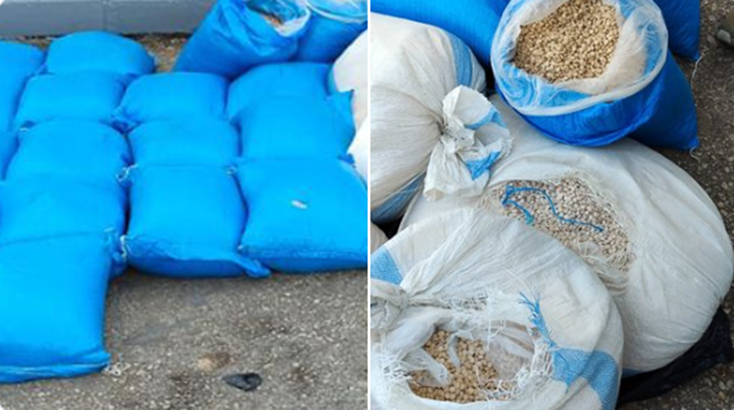
On September 17, the Lebanese army announced that as part of the fight against drug trafficking, intelligence and army forces raided a drug manufacturing facility in the town of Budai in the Baalbek area. During the raid, approximately 64 million Captagon pills were seized, along with 79 barrels containing chemical substances used to produce the drug, and several machines used in its manufacture—one of the largest seizures ever carried out on Lebanese soil. The operation was perceived as a significant achievement in the national and regional fight against drug exports.
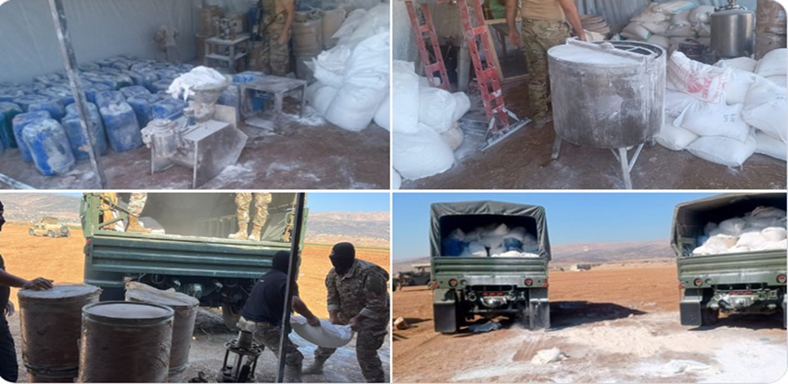
On September 19, the Lebanese army carried out a large-scale security operation in the heart of the Shatila refugee camp, which is considered a central hub for drug trafficking activity in Beirut. According to the statement by the Lebanese army spokesperson, the operation was conducted after months of meticulous intelligence monitoring and included raids on warehouses used for large-scale storage and distribution of drugs, as well as facilities used to market them to areas in and around Beirut. During the operation, exchanges of fire broke out with the wanted individuals, several gunmen were wounded, and 55 suspects were arrested—among them Lebanese, Syrians, and Palestinians. In addition, large quantities of drugs, weapons, and ammunition were seized, surveillance cameras were removed, and the equipment was confiscated for investigation under the supervision of the judicial system.

On August 6, the Lebanese army carried out a large-scale security raid in the Sharawneh neighborhood in Baalbek. The raid targeted a senior figure in the Lebanese drug industry, Ali Mandhar Zeaiter, known as “Abu Salah,” who was eliminated along with two other members of the Zeaiter family. Ali Zeaiter was considered one of the most dangerous and wanted drug criminals in Lebanon. He headed an extensive network for the production and smuggling of Captagon and had over 20 arrest warrants against him for trafficking, shootings, kidnappings, and forming armed gangs. His move to the Baalbek area in recent years strengthened his status in the organized crime world in the northern Beqaa and along the Syrian border.
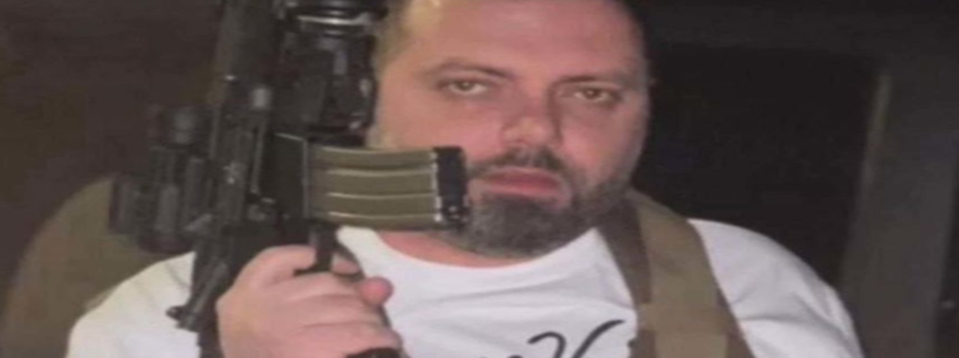
On July 14, the Lebanese army carried out a series of large-scale operations across the country — in the north, the east, and Mount Lebanon. The army also raided the homes of wanted individuals in Tripoli and in the Beqaa Valley area, arrested suspects, and seized large quantities of weapons, ammunition, and drugs. In another operation in the town of yammoune in the Baalbek area, one of the largest manufacturing facilities for Captagon pills was uncovered, where tens of thousands of pills and chemical substances weighing a total of about 10 tons were found. The army dismantled the equipment, destroyed part of the materials, and even blocked a 300-meter tunnel that had been used to transfer equipment and goods. In addition, illegal smuggling routes on the border with Syria, which had been used for the transfer of drugs, fuel, and people, were shut down.
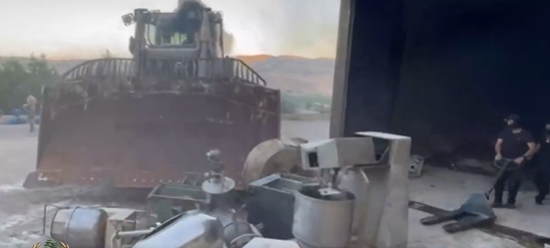



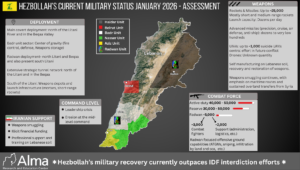

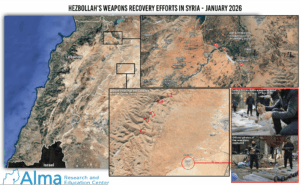
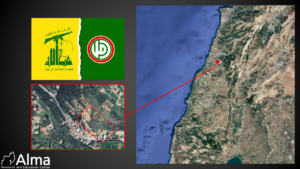
One Response
Dear Zoe,
Until hezbollah forces are eradicated from Lebanon the country will remain unhealthy: just like a terminal cancer patient. Remove the cancer and health can be restored. Leave the cancer and it will grow until death takes away all healthy governance. No matter how much we analyze the symptoms, the only solution is to remove the cancer. Lebanon is now too weak to disarm hezbollah, and there is no possibility of hezbollah disarming itself. Their core beliefs and jihaddist ideology require genocidal death to Israel and death to the USA. We cannot have peace with any hezbollah presence in Lebanon: they must be completely defeated or terror will return upon innocent Israelis again. TERRORISTS MUST BE DESTROYED! We know by experience that tolerance of terrorists leads to genocidal actions by terrorists. We must have Total Victory. End of discussion.